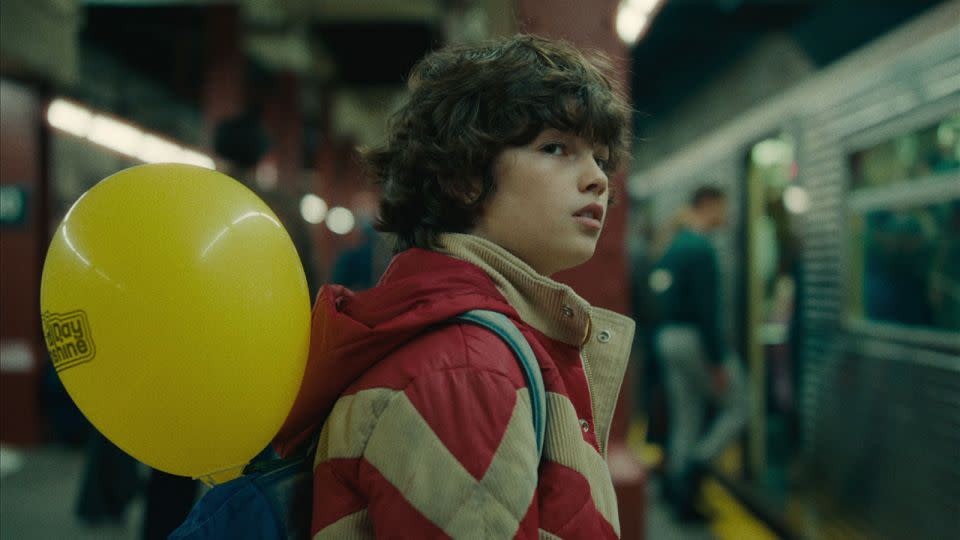‘Eric’ pulls the right strings as Benedict Cumberbatch’s puppeteer seeks his missing son
Weird, dark but compulsively watchable, “Eric” stars Benedict Cumberbatch and a hulking foul-mouthed puppet, not necessarily in that order. Set amid a dystopian vision of a dangerous, corrupt 1980s New York, it’s part mystery, part satire and part right-wing fever dream about crime-infested cities, powered by the parental nightmare fuel of a missing child.
That child is nine-year-old Edgar (Ivan Howe), whose father, Vincent (Cumberbatch), is the cranky, authority-flouting creator and lead puppeteer behind a popular children’s show, “Good Day Sunshine.” The title and occupation both prove ironic, given that everything about the show is awash in grime and darkness, including the constant bickering between Vincent and his wife Cassie (Gaby Hoffmann), trapped in a broken marriage that isn’t lost on their son.
When Edgar abruptly goes missing, both parents blame Vincent, who becomes convinced his child’s drawings of an ogre-like puppet named Eric are somehow the key to finding him.
As Vincent turns to self-medication to ease his anxiety and guilt, Eric appears to him, and him alone, ostensibly to help him locate the boy. However, talking to an invisible creature – whose language would make the “Avenue Q” gang blush – isn’t necessarily the way to win the trust of those around him, including Vincent’s work partner Lennie (Dan Fogler), whose efforts to cover for Vincent’s bad and erratic behavior face growing strain.

The other major strand of “Eric,” created by Welsh writer Abi Morgan (“The Iron Lady”), involves the detective (McKinley Belcher III) assigned the case, a closeted Black man dealing with a racist and homophobic police department. In addition, there’s the matter of a missing Black teenager – whose story, notably, hasn’t received nearly as much media attention – creating the possibility that Edgar’s disappearance might be somehow linked to a sordid web of child exploitation and trafficking.
While Cumberbatch (whose recent dances with Netflix include “Power of the Dog” and “The Wonderful Story of Henry Sugar”) nails his performance as a guy slowly unraveling, the police investigation and its various twists, turns and red herrings animate “Eric,” figuratively and literally.
Through its six-episode run, Morgan impressively weaves in peripheral characters and seemingly minor players in unexpected ways. In this iteration of New York, nobody is above suspicion, the wealthy and influential – a roster that includes Vincent’s well off and politically connected family – are the real monsters, and almost everyone gives the impression of being guilty of something.
At times “Eric” feels so relentlessly grim as to become almost oppressive, feeding the popular impression of New York (especially during the period in question) as a modern-day dystopia.
The payoff, however, reveals method in that madness, in a way that brings the discordant elements together – with a few hiccups – in surprisingly effective fashion. Eric might need somebody to pull his strings, but give credit to “Eric” – especially considering the challenging nature of the concept – for so effectively tying those threads together.
“Eric” premieres May 30 on Netflix.
For more CNN news and newsletters create an account at CNN.com


